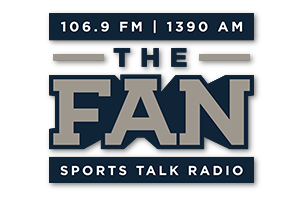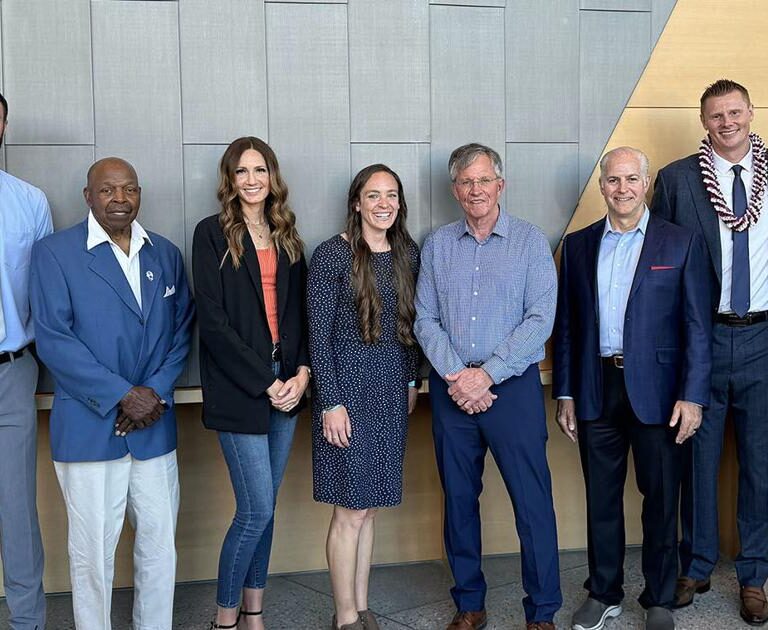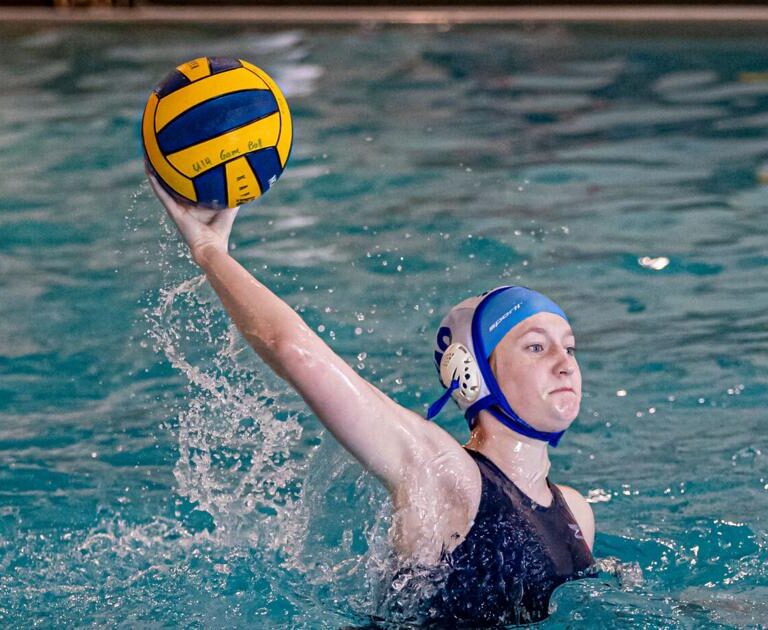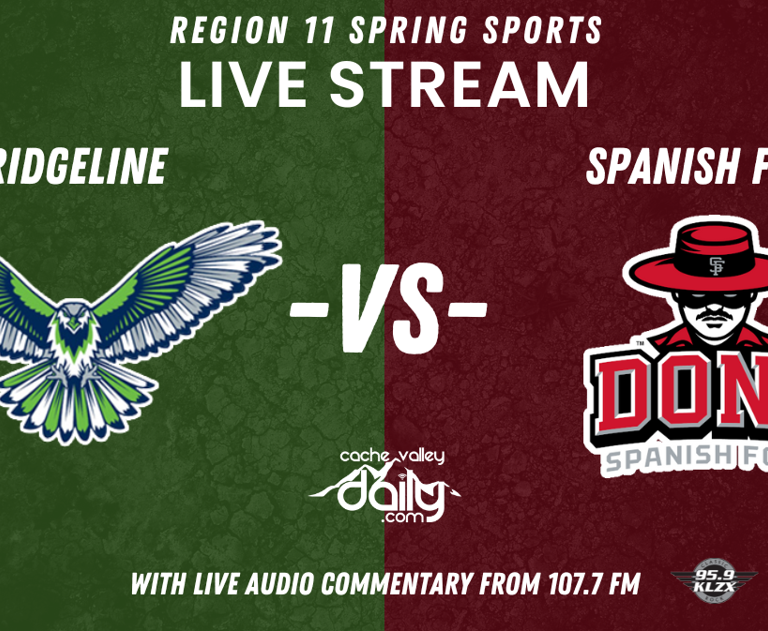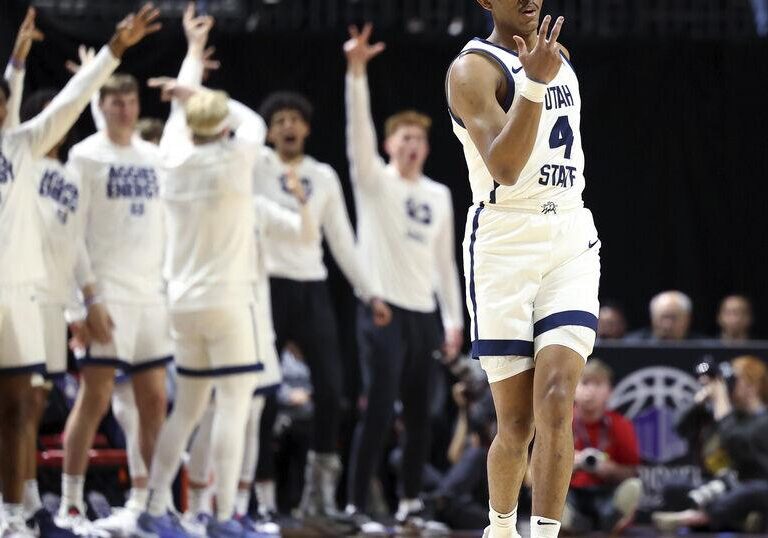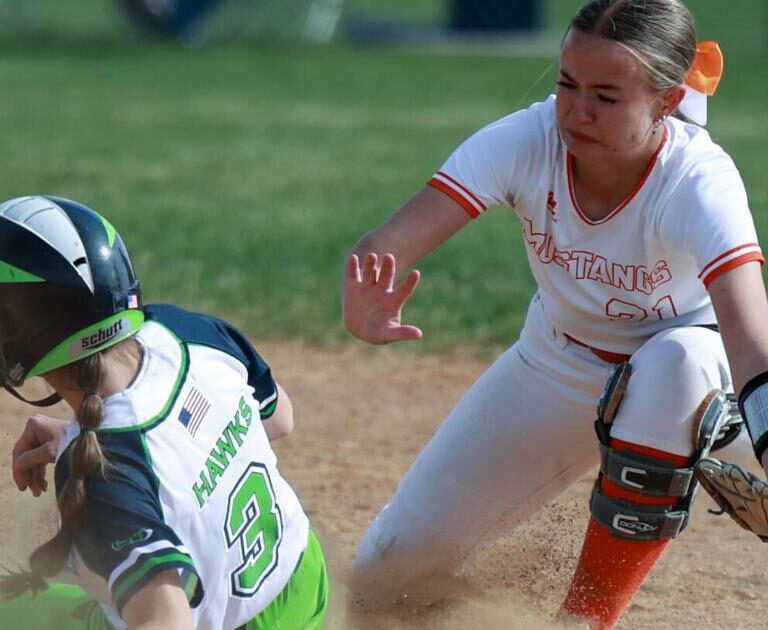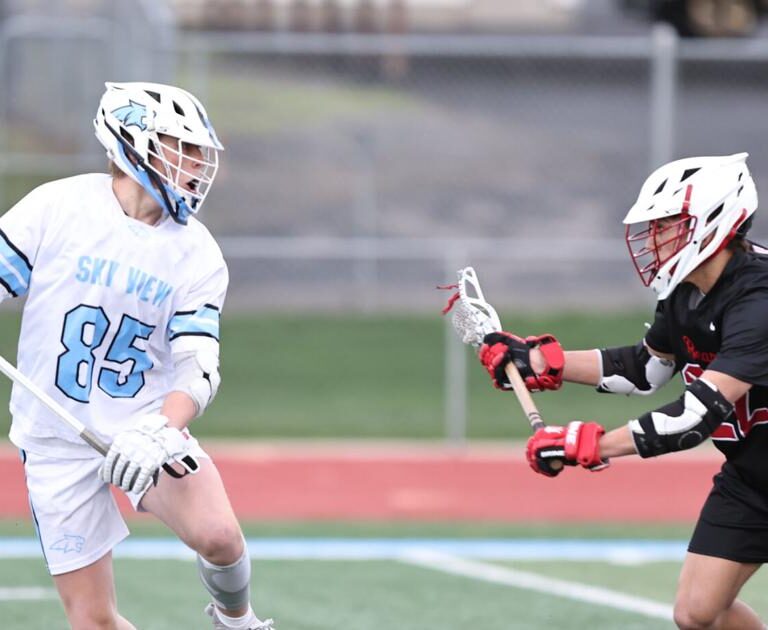LOGAN – Few bye weeks have come at a more opportune time than Utah State’s did for it. Three weeks in and the season is already reaching worst-case scenario levels. Losing to Weber State at home brought this Aggie team to its knees. But a week off allows the team to get up, lick its wounds and figure out just how to chase this season’s still-possible goal of repeating as conference champions.
“Coming out of (losing to Weber State), I think reality sets in. This is not going to be easy. I don’t think anybody should have ever expected that it was,” USU head coach Blake Anderson told Eric Frandsen in an interview with the Full Court Press. “We have turned over every possible area of concern that we can. Had some really good practices, some very hardcore, difficult meetings. Really kind of brutal honesty in some areas about where we can fix things. And from that point, all you can do is move forward. Learn from the past and move forward.”
One things the Aggies unfortunately won’t be able to change is the loss of two starters, one on offense and defense. Slot receiver Kyle Van Leeuwen and defensive tackle Phillip Paea will both miss the remainder of the season with knee injuries. Van Leeuwen is second on the team in receptions with eight for 88 yards and a touchdown. Paea had already played limited snaps due to injuries, but did record his first career interception against Weber State.
Not all of this week was focused on film sessions, and brutally honest meetings. Anderson said recruiting was “a huge priority this week.” Many of the team’s coaches spent the weekend travelling to watch various recruits around the country.
“Had a great season last year but graduation hit us big, graduated a ton of talent,” Anderson said. “And so the rebuilding process in making sure that we don’t have that problem every year is about recruiting and development. And this recruiting class that we’re putting together will be tremendously important as was this last year’s class.”
Anderson noted several times the impact of losing last year’s graduating class, a class that included Deven Thompkins, Justin Rice and Nick Heninger among plenty of other notables.
“You don’t lose 20, 22 key players like we did without some growing pains,” Anderson said. “Now they’ve been tougher than we wanted them to be, definitely tougher than the fanbase expected.”
The statement that losing great talent in droves hurts is something of a “hindsight is 20/20” observation, but it’s a reality the Aggies have to work with. So, where to improvements start? Well, for Anderson, his coordinators and assistants, the first place to look for improvements isn’t with the players, but inside the staff room.
“We start from us first, looking from head coach down,” Anderson said. “Just where we can be better, looking at what we’re doing schematically. Does it fit the personnel that we have this year? Doesn’t really matter, necessarily, what last year’s could do, are we maximizing every athlete, every possible weapon in all three phases of the game? Are there some tendencies and things we’d like to do differently?”
Conservative play-calling has been on the forefront of discussions in regards to both the coaching staff and Utah State’s impotent offense. The Aggies haven’t seemed willing to go for it all in many situations, running the ball far too often on 3rd and long situations and not letting Bonner let it rip like he did much of last season. The contrast between USU’s big-play offense last year and this year’s rather mellow iteration are stark.
Anderson explained the conservative play-calling as functions of how they felt they had to approach the game and how those games went. Against UConn, not only did the team want to work on the run game, but the Huskies’ defensive approach led them to lean on it more.
“The way (UConn) played us with so much deep coverage and dropping eight in to coverage it dictated that we needed to run the ball well,” Anderson said.
As for the Alabama game, Anderson wasn’t keen to be aggressive due to the possibility of disastrous results.
“(Alabama) was a game where you had to be very smart about how you approach handling that game plan,” Anderson said. “If you hold on the ball for an extended period of time, if you’re trying to hold on and push things deep deep down the field typically they end with not good results.”
The Aggies did push the ball down the field more often against Weber State, with Bonner throwing 17 passes that traveled at least 10 yards down the field (he only had 16 prior to the Week 2 game), but as Anderson pointed out, execution was lacking.
“We didn’t win in one-on-one coverage. We tried to go at them in a handful of areas and didn’t win,” Anderson said. “We didn’t protect particularly well. We missed some throws. We dropped some balls as well. You name it, it went wrong.”
For all the talk of coaching, play-calling and recruiting, the fact is it’s the players on the team right now who have to play and make a difference on the field.
“This is going to come down what they believe, what they’re willing to do, how hard they’re willing to work,” Anderson said. “Can we be coachable and improve and just one week at a time go out and be better than we were the week before?”
One of the most piercing statements Anderson made after the Weber State loss was how the team lacked leadership. And in expanding on those comments, he made clear point about how it can be hard to lead in situations where it’s win or lose.
“Leadership in the weight room and leadership out on the practice field are completely different than a stadium full of 30,000 people and a scoreboard. There’s just not the same pressure that you can put on people when there’s no scoreboard in a practice,” Anderson said. “When it comes time to win and lose games, that is an environment that not everybody is comfortable. And not everybody is definitely not comfortable leading in those areas.”
Here again, Anderson noted the loss of so many great players. Ones that not only produced on the stat sheet, but led the team to victory in so many dire situations where most on-lookers expected to see the Aggies fall in defeat.
How much the Aggies improved and re-grouped during the bye week will be largely determined by how they fare against UNLV this week. Anderson said his team “took the right first-step approach to getting better.” Everyone can only hope he’s right.
